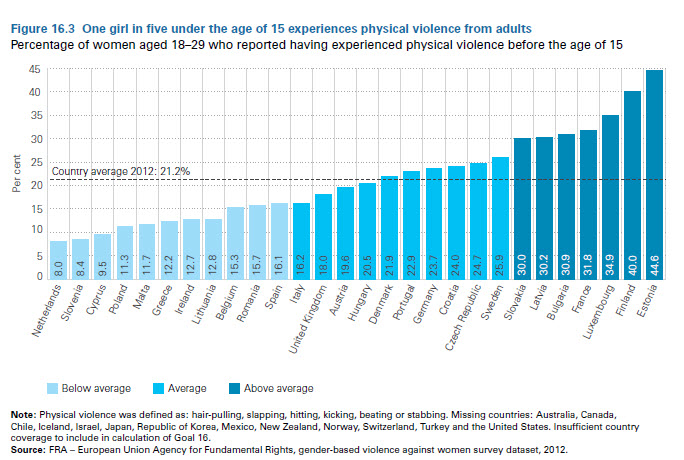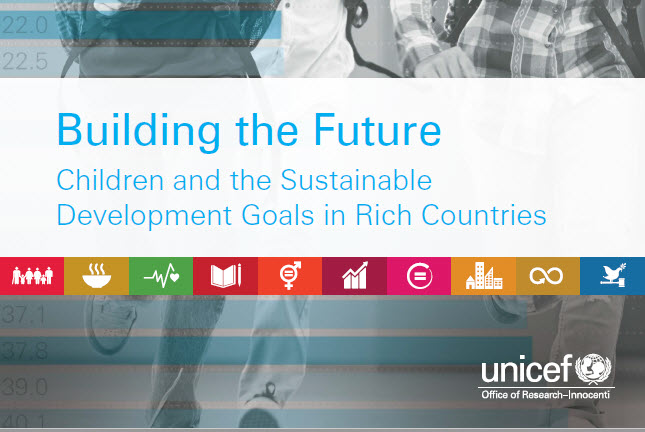What the latest UNICEF report said about smacking…
 UNICEF has just released the Innocenti Report Card 14.
UNICEF has just released the Innocenti Report Card 14.
There is a section entitled “Stopping adult violence against children” and contains a graph which shows the results of a survey by the European Union Agency for Fundamental Rights that reflects the levels of adult physical violence against girls aged under 15.
So it’s only related to girls. But here’s the key admission by the report:
However, it is interesting to note that Finland, which has a high rate of reported physical violence, was one of the first European countries to ban corporal punishment (in 1983), while the nation with the lowest incidence, Slovenia, has only recently (in October 2016) passed legislation prohibiting it in the home.

In fact, of the 7 worst countries, 6 of them have banned smacking (Latvia 1998, Bulgaria 2000, France 2016, Luxembourg 2008 , Finland 1983 and Estonia 2014).
Sweden – the first country in the world to ban smacking (1979) comes in as the 8th worst country!
But this isn’t breaking news.
In 2003, UNICEF’s Innocenti Report Card “A League Table of Child Maltreatment Deaths in Rich Nations” was the first ever attempt to catalogue physical abuse of children in the 27 richest nations of the world. Of the 10 top countries in the UNICEF report which had an exceptionally low incidence of child maltreatment deaths, six hadn’t banned smacking.
UNICEF reports in 2003 and 2007, a CYF report in 2006, and a Children’s Commissioner report in 2009 listed factors most commonly associated with the maltreatment of children as including;
• drug and alcohol abuse
• family breakdown
• children not living with biological parents
• single parenthood / weak family ties
• poverty and stress
• low maternal age at birth
That’s why the anti-smacking law was always destined to do nothing but criminalise good parents raising great kids.
READ MORE: Defying Human Nature – An Analysis of New Zealand’s 2007 Anti-Smacking Law






